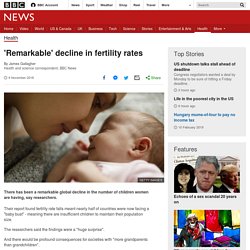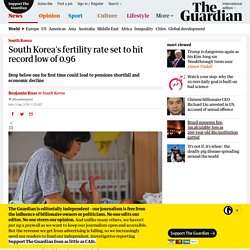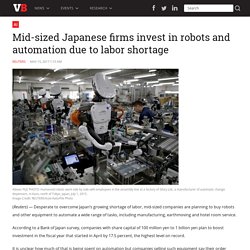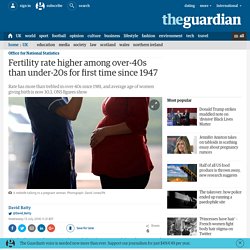

'Remarkable' decline in fertility rates. Image copyright Getty Images There has been a remarkable global decline in the number of children women are having, say researchers.

Their report found fertility rate falls meant nearly half of countries were now facing a "baby bust" - meaning there are insufficient children to maintain their population size. The researchers said the findings were a "huge surprise". And there would be profound consequences for societies with "more grandparents than grandchildren". How big has the fall been? The study, published in the Lancet, followed trends in every country from 1950 to 2017.
In 1950, women were having an average of 4.7 children in their lifetime. But that masks huge variation between nations. The fertility rate in Niger, west Africa, is 7.1, but in the Mediterranean island of Cyprus women are having one child, on average. In the UK, the rate is 1.7, similar to most Western European countries. South Korea's Fertility Rate Set to hit Record Low (0.96)
South Korea’s fertility rate is expected to fall to an all-time low this year, setting the country up for a host of problems including underfunded pensions, expanding debt and economic decline.

The average number of babies born per woman of reproductive age is due to be as low as 0.96 this year, falling below one for the first time in history, according to a study commissioned by the Chosun Ilbo newspaper. Such a low fertility rate is normally only seen during wartime, said Lee Chul-hee, an economics professor at Seoul National University and one of the authors of the study. “There’s definitely going to be a psychological shock among the Korean people,” he said. “It will likely influence what is considered to be an ideal number of children, and could lead to the rate dropping even further.” Lee Chul-hee warned that social welfare schemes such as healthcare and pensions will face shortfalls as society ages and there are fewer people to pay to support them. … we have a small favour to ask.
Japanese Over 90's Topped 2m in 2017. Japan's Labour Shortage Driving Robot Investment for Mid-Sized Co's. (Reuters) — Desperate to overcome Japan’s growing shortage of labor, mid-sized companies are planning to buy robots and other equipment to automate a wide range of tasks, including manufacturing, earthmoving and hotel room service.

According to a Bank of Japan survey, companies with share capital of 100 million yen to 1 billion yen plan to boost investment in the fiscal year that started in April by 17.5 percent, the highest level on record. It is unclear how much of that is being spent on automation but companies selling such equipment say their order books are growing and the Japanese government says it sees a larger proportion of investment being dedicated to increasing efficiency. Revenue at many of Japan’s robot makers also rose in the January-March period for the first time in several quarters. If the investment ambitions are fulfilled it would show there is a silver lining as Japan tries to cope with a shrinking and rapidly aging population. Research Finds Human Lifespan Has A Max Limit: 125. Maximum Lifespan Defined Scientists at the Albert Einstein College of Medicine assert that they have discovered the maximum lifespan of human beings, and it’s a range we may no longer be able to exceed.

Dr. Jan Vijg, professor of ophthalmology and visual sciences at Einstein, lead the research, which was published online today in the journal Nature. Using data from Human Mortality Database, population data from more than 40 countries, and maximum-reported-age-at-death data from the International Database on Longevity, the researchers identified the maximum human lifespan at an average of 115 years, with an absolute limit of 125 years. Vijg was clear to outline that we have already achieved the best we can through biology: “Data strongly suggest that it [maximum longevity] has already been attained and that this happened in the 1990s.”
UK 40+s Fertility Rate Now Higher Than <20s. The fertility rate of women aged 40 and above has surpassed that of women aged under 20 for the first time since 1947, according to the Office for National Statistics (ONS).

The older age group had the largest percentage increase (3.4%) in fertility rates in 2015, the figures show, while the younger age group had the largest percentage decrease (7.1%), continuing a decline since 1999. World Population Passes 7bn. Photo ONE week from today, the United Nations estimates, the world’s population will reach seven billion.

Because censuses are infrequent and incomplete, no one knows the precise date — the Census Bureau puts it somewhere next March — but there can be no doubt that humanity is approaching a milestone. The first billion people accumulated over a leisurely interval, from the origins of humans hundreds of thousands of years ago to the early 1800s. Adding the second took another 120 or so years. Then, in the last 50 years, humanity more than doubled, surging from three billion in 1959 to four billion in 1974, five billion in 1987 and six billion in 1998.